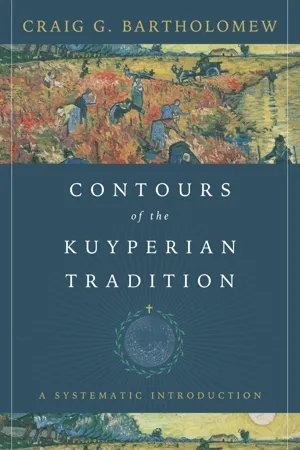Introduction
Seeking the Welfare of the City
A disciple is a follower of Jesus. This is true of any Christian who has lived or will live. However, discipleship is always lived in particular historical and cultural contexts, and in these contexts particular challenges are faced. When I pastored and then taught at a seminary during racist, apartheid South Africa, I would tell students that if they were preaching the gospel in predominantly white churches they would inevitably need to call for deep repentance from racism. To my students who were preaching in predominantly black churches I suggested that they would need to deal with issues such as hatred and the temptation to resort to violence. Both groups would encounter resistance.
We are always called to follow Christ together amid our particular cultures and historical contexts, and in these contexts to “seek the welfare of the city” (Jer 29:7). George Weigel said of Pope John Paul II that he scouted the future in order to discern how best to direct the church in the present. Of course, we do not know the future, and history is inevitably full of surprises. The future, however, always proceeds from the present and, while we need to follow Christ fully aware that many surprises might lie ahead, we do have a responsibility to become as conscious as we can of the spirits of our age and where they appear to be taking us. We are called and we desire to follow Christ; we can only do that today, in our present context and circumstances.
John Stott expressed this clearly in his call for double listening: disciples need to have one ear to the Bible and one to the culture. In Scripture we hear the authoritative word of God addressed to us, but we need to embody that word, and we can only do so in our contexts. Immersion in Scripture is utterly indispensable for discipleship, but so too is cultural analysis. We need to know the challenges of our age so that we can scout our age and work out how to embody the gospel together in our context.
Of course, our contexts vary. I am particularly aware that the global centers of Christianity have shifted so that the secular West is no longer the center of world Christianity. While we are witnessing a revival of Christianity around the world, including in parts of the West, the new centers of Christianity are located in Asia, Latin America, and Africa. Much of the West is governed by a virulent secular elite, whereas in much of the developing world and in some of the most advanced countries of our day, such as South Korea, the church is alive and thriving.
Thus, it is important to note that we will need to assess the challenges we face in our particular contexts and cultures. At the same time there is truth to what is called globalization, in which a Western-style consumer culture is being spread across the globe. In the West it has, however, been common to call the spirit of our age postmodernism, the word for the widespread reaction to modernity that gathered force in the West in the latter half of the twentieth century, a century in which the hubris with which the century opened was dealt devastating blow after blow: World War I, the war to end all wars; the rise of Communism; the Great Depression; World War II; the nuclear threat; the ecological threat; and so the list continues. Indeed, it is argued that the twentieth century was the most brutal in history. Intriguingly, it was during the years of relative stability and affluence in the West following World War II that the postmodern reaction set in, ruthlessly questioning the foundations of modernity and its trust in science and reason. Postmodernism has indeed savaged much of the belief structure of modernity, but what the very name postmodernism conceals is the triumph of modernity economically and technologically in globalization. Consumer capitalism is quintessentially a modern phenomenon. Postmodernism is largely deconstructive rather than constructive, and useful as its critique of modernity is, the failure to provide alternative, constructive theories has meant that there is no longer any commonly held modern ideology or worldview to restrain the excesses of consumer capitalism. We are left with a free-floating consumerism that is its own justification.
The effects are faced across the world. An economic apartheid has opened up between north and south, and intriguingly, in the north leadership is moving to nations such as China, Singapore, South Korea, India, and others. No matter where we are in the world, these forces of globalization affect us in some way on a day-to-day basis, as they interact with the particular challenges of our contexts.
Take South Africa, for example, the country where I grew up and where I started writing this book. My family home, where I am based when I am in South Africa, is close to where Alan Paton lived, the author of the acclaimed novel Cry, the Beloved Country. South Africa is exceptionally beautiful, and some ten minutes’ drive from where I live in KwaZulu Natal one enters the valley of a thousand hills, exquisite beauty symbolic of the diverse landscapes found in South Africa. Not too far north of the valley of a thousand hills is Ixopo, where Paton begins his novel:
There is a lovely road that runs from Ixopo into the hills. These hills are grass-covered and rolling, and they are lovely beyond any singing of it. The road climbs seven miles into them, to Carisbrooke; and from there, if there is no mist, you look down on one of the fairest valleys of Africa. About you there is grass and bracken and you may hear the forlorn crying of the titihoya, one of the birds of the veld. Below you is the valley of the Umzimkulu, on its journey from the Drakensberg to the sea; and beyond and behind the river, great hill after great hill; and beyond and behind them, the mountains of Ingeli and East Griqualand.
Paton wrote most of Cry, the Beloved Country while on a trip to reformatories in Scandinavian countries. In his autobiography Towards the Mountain he describes how he was feeling homesick, and after spending time in a cathedral, he went back to his hotel room and the novel started to pour out of him. As only narrative can, the book evokes the pathos of apartheid South Africa.
Cry, the Beloved Country has as a central character, a black priest, whose son goes off to Johannesburg. The son gets into trouble and ends up murdering a young white lawyer. The novel ends with the execution of the priest’s son. The priest wakes early to spend time meditating and praying while his son is executed. The book ends: “For it is the dawn that has come, as it has come for a thousand centuries, never failing. But when that dawn will come, of our emancipation, from the fear of bondage and the bondage of fear, why, that is a secret.”
In many ways the emancipation of South Africa did come in 1994, the year of the first democratic election. On the night when Nelson Mandela and F. W. de Klerk were awarded the Nobel Peace Prize in 1993, Archbishop Desmond Tutu declared, “Once we have got it right South Africa will be the paradigm for the rest of the world.” In 2014 South Africa celebrated twenty years of democracy. Alas, it is widely apparent that we have not got it right. Recent years have seen the publication of books such as A Rumour of Spring: South Africa After 20 Years of Democracy, by well-known journalist Max du Preez (2013); A Nation in Crisis: An Appeal for Morality, by Catholic academic Paulus Zulu (2013); What’s Gone Wrong? On the Brink of a Failed State, by Methodist minister and politician Alex Boraine (2014); and How Long Will South Africa Survive? The Looming Crisis (2015), by Oxford and South African historian R. W. Johnson.
All these books make worrying reading, written as they are by strong critics of apartheid South Africa and great supporters of and contributors to the new South Africa. Du Preez and Boraine both put the years the African National Congress spent in exile under the microscope to see whether the disturbing patterns we see now have their roots there. Both find that they do. A tendency in the years in exile was to absolutize the authority of the party, and this continues into the present, except that the party is now governing. Ethically, a political party is simply inadequate as the final authority, and yet when under pressure it is appeal to the party that we hear again and again. It was not always so with the African National Congress. Some of its founders, such as Albert Luthuli and its leader in exile, Oliver Tambo, were committed Christians, and Luthuli in particular stands out as someone whose primary allegiance was to the God who has shown himself in Christ.
Such a transcendent point of authority is essential for healthy politics. In this sense politics and the nation need religion. However, as is well-known, the relationship between Christianity and politics in the history of South Africa has been anything but straightforward. Christianity did produce such luminaries as Archbishop Desmond Tutu, but a great many Christians, and Reformed ones in particular, used Christianity to justify their support of apartheid. The result is that Christianity, and especially Reformed Christianity, lacks credibility in South Africa.
Clearly South Africa has its particular demons to exorcize. Christians seeking to follow Jesus in this context will need to be deeply aware of South Africa’s troubled history and how that translates into the present. However, in combination with this, one needs to explore critically the interface between South Africa and globalization. Veteran South African journalist Allister Sparks took on a job as a political analyst in semiretirement, a job in which he found himself
covering not only the fast-moving events in South Africa but in the world as a whole, because it soon became apparent that my own country was no longer an isolated entity. This was the age of globalization, and any major event anywhere impacted on everyone. We were all living in Marshall McLuhan’s global village, where an airplane flying into a skyscraper in New York could cause economic shudders in Johannesburg, a war in the Middle East could send oil prices and thus living costs rocketing world-wide. Even the political ideologies being cooked up by the neo-conservatives in Washington could impose constraints on the policy choices faced by President Mbeki in Pretoria.
Johnson asserts, “The key to understanding South Africa’s development lies in its integration into a world capitalist political economy.” Undoubtedly many of the problems of South Africa are internal to the country, but these are inse...

